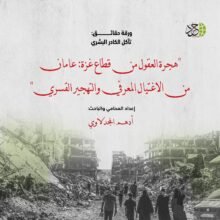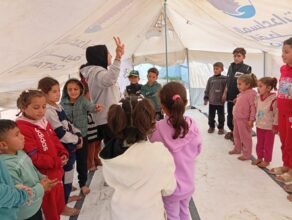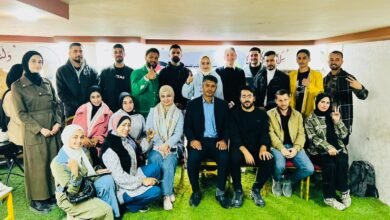
ICSPR Issues a Policy Paper on the Vision of Palestinian Women for the Next Phase After the War in the Gaza Strip
Date: 21 November 2025
Press Release
ICSPR Issues a Policy Paper on the Vision of Palestinian Women for the Next Phase After the War in the Gaza Strip
The International Commission to Support Palestinian Rights (ICSPR) has issued a new policy paper titled “The Vision of Palestinian Women in the Gaza Strip for the Next Phase After the War,” prepared by lawyer Reem Mahmoud Mansour, with the aim of shedding light on the situation of women after the recent war, exploring their vision for the future of the Strip, and presenting policy alternatives that ensure their effective participation in reconstruction efforts and national decision-making.
The paper highlights the immense tragedies experienced by women during the war, including the killing of more than 12,500 women, representing 15.8% of the total number of martyrs. It also notes an unprecedented rise in maternal mortality due to the collapse of the health system and severe shortages in medication. In addition, 21,182 women lost their husbands and became sole providers for their families under extremely difficult conditions, amidst severe economic deterioration, the collapse of thousands of women-led small businesses, rising living costs, and soaring unemployment rates.
The paper stresses that displaced women are living in harsh conditions inside overcrowded shelters that lack privacy, adequate healthcare, and reproductive services, while facing mounting psychological and social burdens resulting from loss, trauma, and the expanded caregiving roles imposed on them. It further points out that women remain marginalized in decision-making spaces—including reconstruction committees and local institutions—despite being key pillars of community resilience.
The paper outlines the most prominent challenges facing women in the post-war phase, including:
humanitarian and living conditions, economic decline, psychological and social impacts, legal and institutional fragility, and diminished political participation—emphasizing the need to address these challenges within a comprehensive national vision.
The paper reflects a broad feminist vision for the future of the Gaza Strip, based on:
-
Comprehensive reconstruction that takes into account the needs of women and vulnerable groups and ensures their participation in planning and implementation.
-
Economic empowerment through accessible financing programs and support for women-led small and medium enterprises.
-
Strengthening psychosocial support by establishing specialized centers for affected women and children.
-
Expanding political participation through an effective women’s quota in national and local bodies.
-
Building a society grounded in justice and equality, and combating gender-based violence.
The paper sets forth several practical policy recommendations directed to the Palestinian government, including:
-
Ensuring women’s representation of no less than 30% in reconstruction committees and local councils.
-
Updating national legislation in line with the Convention on the Elimination of All Forms of Discrimination against Women (CEDAW).
-
Establishing national mechanisms to monitor violations against women during and after the war.
-
Supporting vocational and technical training programs for women affected by the conflict.
It also calls on the international community to allocate funding specifically for women within relief and reconstruction programs, enhance accountability for violations committed against Palestinian women, support women’s organizations, and facilitate their direct access to international funding.
On the media level, the paper underscores the importance of highlighting women’s stories and leadership roles in resilience and reconstruction, as well as integrating women’s issues into local and international media discourse.
The paper concludes by affirming that empowering women in the post-war phase is a fundamental pillar for rebuilding a just and cohesive society, and that their participation in decision-making is not a privilege, but a right and a national necessity to ensure sustainable development, social justice, and genuine partnership in rebuilding Gaza’s future.





